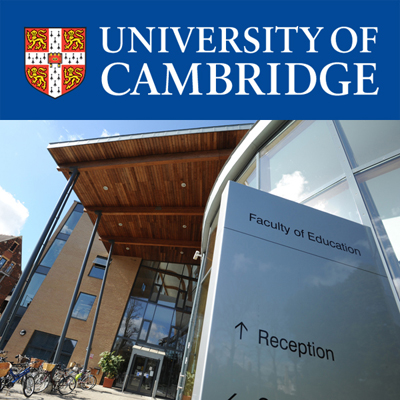Teacher learning and student learning: are they related?
Duration: 60 mins
Share this media item:
Embed this media item:
Embed this media item:
About this item

| Description: |
This is the video recording of the inaugural lecture given by Professor Jan Vermunt at the Faculty of Education of the University of Cambridge on 22nd May 2013.
|
|---|
| Created: | 2013-06-12 09:51 | ||||
|---|---|---|---|---|---|
| Collection: | Inaugural Lectures | ||||
| Publisher: | University of Cambridge | ||||
| Copyright: | Jan Vermunt | ||||
| Language: | eng (English) | ||||
| Keywords: | Student Learning; Teacher Learning; Professional Learning; Professional Development; Learning Pattern; Learning Science; Learning Model; | ||||
| Credits: |
|
||||
| Abstract: | Why does research on learning and instruction often have so little impact on teachers and teaching? Why does research on teaching and teacher education often have so little impact on student learning? In this inaugural lecture, explanations for these remarkable disconnections are sought and directions for possible solutions are proposed. Research
on students' learning and teachers' teaching and learning are currently organized in separate research communities, with each their own conceptual frameworks, methodological preferences, professional organizations, and scientific journals. Cross-referencing is an exception. In my view, traditional boundaries have to be crossed to achieve knowledge advancement about how teachers' and students' learning may benefit each other: boundaries between research communities, between communities of practice, and between research and practice. In this lecture, current models of the relation between teacher professional development and student learning are discussed. An important criticism on these models is that they are black box models, in which the processes of teacher learning and student learning are missing. As an alternative, a multi-layer model of teacher learning and student learning and their interrelationships is presented.Studies on both student learning and teacher professional learning that departed from this common learning model are discussed. Implications for future learning sciences that study teachers' and students' learning in a more interconnected way are derived, as well as implications for educational and learning practices. A research agenda for future research on teacher learning, student learning and the multi-layer model of student learning and teacher learning as a whole is presented. The lecture is concluded with some examples of current and planned research projects in which the study of teacher learning and student learning are integrated. |
|---|---|

